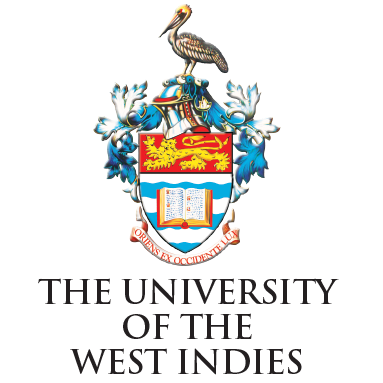
A help desk to protect intellectual property
How an intellectual property help desk set up by a university library team is helping inventors protect their work, with lessons on what has proven most effective
Research management
Sponsored by
Elsevier helps researchers and healthcare professionals advance science and improve health outcomes for the benefit of society.
You may also like
Popular resources
The steel pan, invented in Trinidad and Tobago and considered its national instrument, is not patented. The US-based licence once claiming it has lapsed. How can universities help the inventors of today sidestep similar errors?
This question is particularly important right now. Globally, the development and protection of intellectual property (IP) has steadily been gaining traction in a range of policies promoting entrepreneurship and innovation. The effective management of IP rights, and their enforcement, is essential in economies increasingly competing on the basis of ideas and knowledge.
In world rankings, such as the Global Competitiveness Report, the Caribbean has traditionally not performed strongly in categories such as research and development.
As a regional university, we are working to change that by establishing spin-off companies and commercialised patents, taking the ideas from the laboratory into the marketplace. But protecting those ideas, inventions and solutions is a complex domain in which institutions and organisations struggle, failing to recognise that in knowledge-driven economic development, intangible assets born out of the intellect can be much more valuable than tangible assets.
IP plays a fundamental role in moving research from innovation to commercialisation and enterprise. The ability to properly manage and leverage IP is critical. Academic libraries can aid this process by moving beyond the provision of books and journals for teaching, learning and research to more substantive collaborations and stakeholder partnerships.
- Resource collection: How higher education and industry can work well together
- What you don’t know about IP protections – but should
- Universities as business launchpads: creating spaces for enterprise to flourish
To that end, in 2018, The UWI St Augustine campus’ Alma Jordan Library established an IP help desk to provide staff and students with free access to education, information, training and advisory services relating to intellectual property. The help desk was developed in collaboration with the Trinidad and Tobago Intellectual Property Office (TTIPO) in the Ministry of the Attorney General & Legal Affairs and the World Intellectual Property Organisation (WIPO).
Intellectual property advice and library and information science are a good marriage, creating one place for university staff and students to access resources and information to support their work. The library’s central location on campus makes it easy to access.
How the service works
The IP help desk:
- Receives calls, emails or walk-ins for discussions in confidence. Email is preferred so that the most appropriate subject matter expert is present to provide guidance;
- Conducts preliminary searches to identify if the ideas already exist;
- Shares issues a business needs to address;
- Provides coaching as ideas develop;
- Offers technical support to help commercialise and protect ideas;
- Hosts guest lectures on IP for classroom sessions as part of any university course;
- Enrols staff and students in WIPO’s online distance learning courses through its Worldwide Academy.
Progress, four years on
The deployment of the IP help desk has been successful in terms of effectively meeting the outcomes initially foreseen; creating a platform where the campus community has easy access to IP education, information, training and advisory services. We’ve embedded training sessions by IP officers from the Ministry of Legal Affairs in several classes; set up one-on-one consultations between clients and the IP advisory team; acquired library resources on patents and IP for researchers; and organised lectures and workshops for targeted client groups.
But, moving from the conceptual design of the help desk (including the scope of services and target groups) to the reality is still a work in progress. The IP help desk team continually collects feedback and information from users to inform its ongoing development.
To properly perform its role, the help desk needs to consistently maintain and promote itself as a centre of IP expertise within the university, while offering a range of services in sync with the evolving research and commercialisation needs of individuals and departments.
What has worked?
- Webinars and online training: a cost-effective innovation during the closure of the campus because of the pandemic. The material generated could be archived and made available online in an open-access repository.
- Customised training: the modules delivered are at varying levels of expertise and customised to the needs of the stakeholders and campus units. For example, the film programme and the IP help desk team collaborated to host three lectures on “Creatives and Intellectual Property”, highlighting intellectual property in the Orange Economy, which refers to goods and services that have intellectual value through the ideas and expertise of their creators, and helping creatives navigate the complex IP environment.
- Exhibitions: typically highlighting the themes of World Intellectual Property Day
- IP management: of original works, workshops, papers, manuals and so on, specifically those produced by the campus’ Institute of Gender and Development Studies over its many years of existence.
On the agenda for continued improvement
- Website development and an online chat service;
- Outreach, to spread the word about this valuable free service and available tools;
- Systematic approach to training;
- Assessment of the research community’s needs and the IP help desk’s capacity to respond;
- Determination of what optimal corresponding services should be offered.
A defined and documented approach helps effectively align the campus budgetary provisions with successful deployment of IP advisory services.
The right partner is everything
The success of the initiative has rested mainly on the strong and growing partnerships the library has built internally with the Centre for Innovation and Entrepreneurship, which works to drive innovation and enterprise within the university and beyond; and externally with TTIPO and WIPO. With their support, the IP help desk has been able to provide the campus community with complementary access to education, information, training and consultancy services.
Frank Soodeen is campus librarian at the University of the West Indies’ St. Augustine Campus.
If you found this interesting and want advice and insight from academics and university staff delivered direct to your inbox each week, sign up for the THE Campus newsletter.
Research management
Sponsored by





Comments (0)
or in order to add a comment